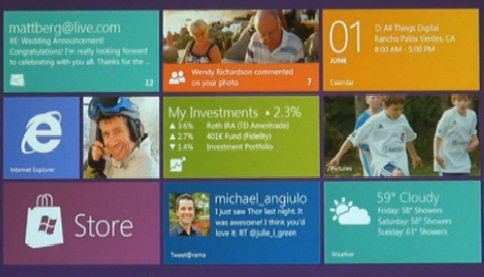Windows Store Offers Developers Better Earnings

Microsoft will reduce its cut from app sales to just 20 percent once app makes more than $25,000
Microsoft has revealed a number of details about its upcoming Windows Store, including a revenue sharing arrangement which will see it reduce its cut from app sales to 20 percent once the app has earned in excess of $25,000 (£16,000).
Various pricing structures and business models were also discussed with the store expected to launch with the beta release of Windows 8 in February.
Attracting developers
 Initially, Microsoft will take a 30 percent cut from all app sales on the store, but will reduce that once an app’s revenue has exceeded the threshold. This means that developers will earn $1.04 (66p) from every transaction, but once it reaches $25,000 (£16,000), this increases to $1.19 (76p).
Initially, Microsoft will take a 30 percent cut from all app sales on the store, but will reduce that once an app’s revenue has exceeded the threshold. This means that developers will earn $1.04 (66p) from every transaction, but once it reaches $25,000 (£16,000), this increases to $1.19 (76p).
“Once an app establishes a bit of success, we increase the revenue share to 80% to reflect and reward that success,” said Ted Dworkin, Partner Program Manager for Windows Store.
This is a more advantageous revenue split for developers than rival stores, but the starting price for apps on the Windows Store is higher than its competitors. The lowest price for an app is $1.49 (94p) and developers will be able to increase their prices in $0.50 (32p) increments up to $4.99 (£3.17), although there will be higher pricing tiers.
This higher starting point means that Microsoft earns $0.35 (22p) per sale, allowing it to cover its costs and then some.
Tablet ready
Dworkin also confirmed that the store would have support for a range of business models including free apps, trials, trial upgrades and in-app purchases.
“Developers need to be able to evolve business models as conditions change. We’ve put the developer in control of these choices,” commented Dworkin.
Microsoft has pledged that Windows 8 will work equally well with tablets and traditional PC’s with users being able to choose between a tiled interface and a more traditional desktop mode. It hopes that this approach will give it a potential inroad into the tablet market, currently dominated by Apple’s iPad.
In August, it confirmed that the new operating system would feature an app store which would allow users to download applications to their desktop instead of having to purchase boxed software and will be the only way to download Metro applications.
The launch of the store will bring it into competition with mobile and tablet stores such as Apple’s App Store and the Android Market as well as desktop stores such as the Mac App Store.